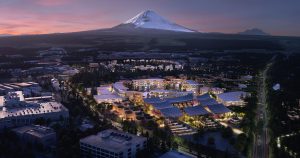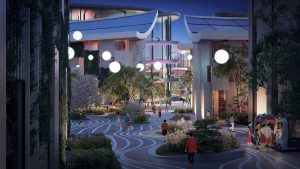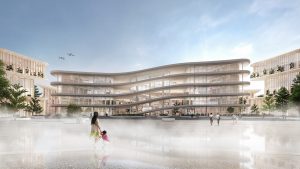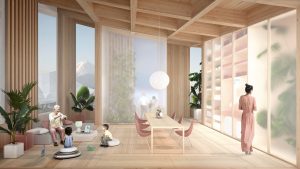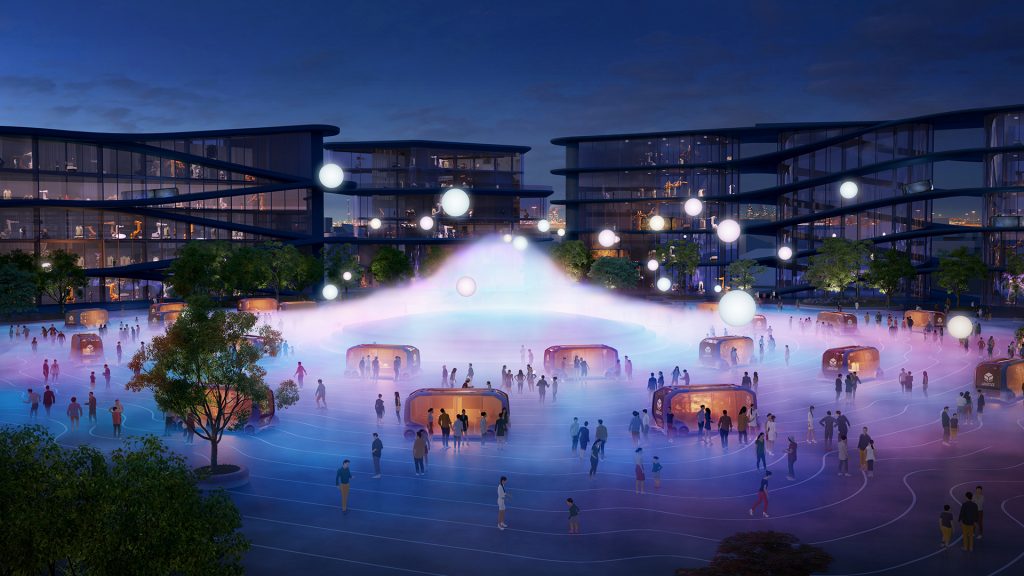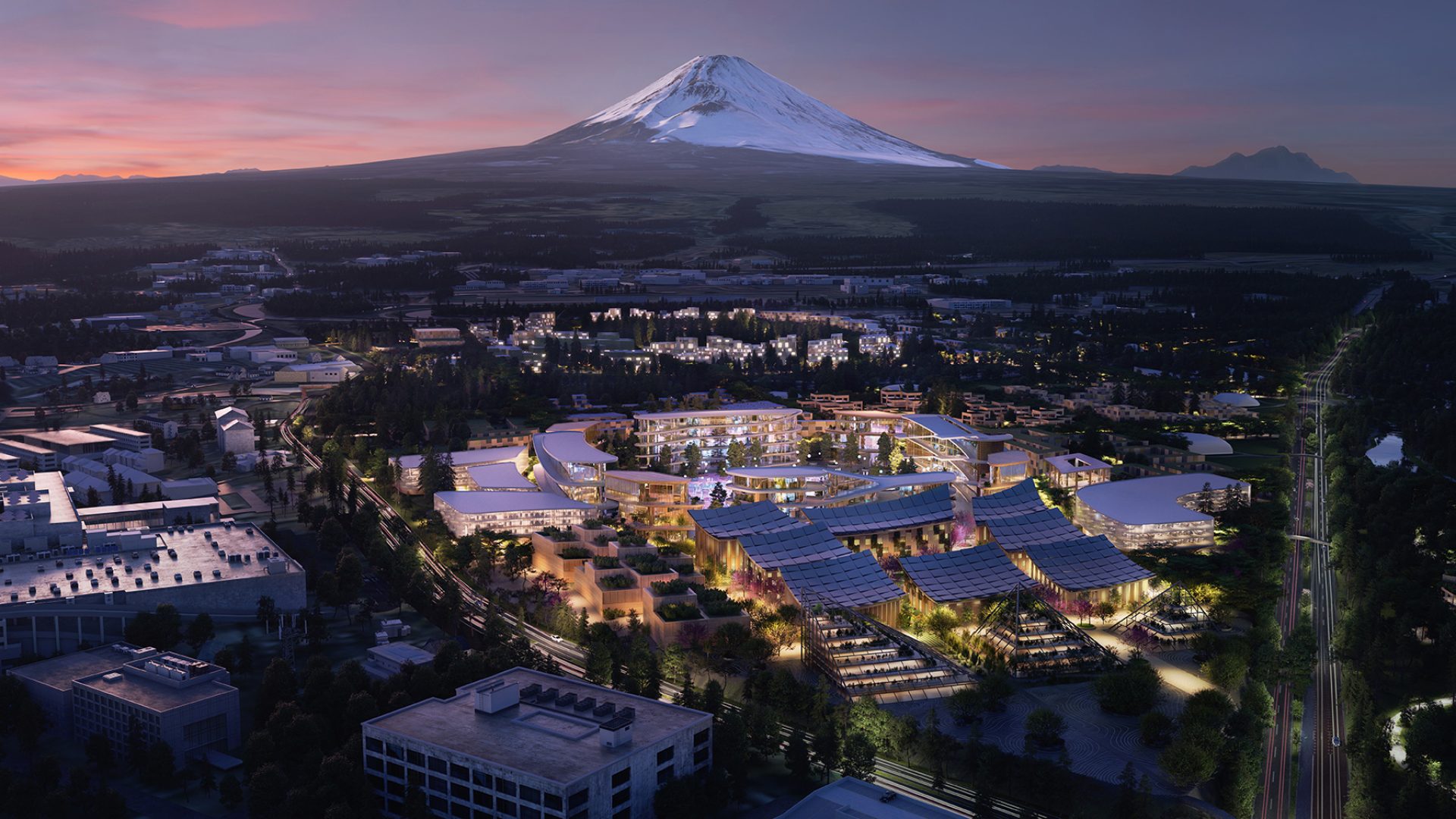
Tomorrow’s Smart Cities
You are sitting alone in a moving vehicle crossing the main square, it is a warm day, and the vehicle is silent. It speeds quickly on the wide street. An automated voice speaks: – According to the average data, your pulse has an irregular rate. Your body temperature is higher than normal; it is advised you book a doctor’s appointment. – – Please book an appointment with my doctor today. – – An appointment has been created in your schedule today at 5 pm. I will remind you 30 minutes before. –
Imagine a city built for people to live more connected, where AI can help us in our daily life and check our health status. Where cars are substituted by self-driven open-interior vehicles electrically powered, now imagine that all of this has already been planned out and ready for construction. With its Woven city project, Toyota is launching a new smart city to be built in Japan with all of the above characteristics
For years, similar projects have been proposed, idealised, and built; prototypes of smart and highly technological cities capable of actively responding to our needs. From hyper-realistic fictional podcast-based Limetown, a laboratory city to research technologies that could better connect people; to Masdar, a newly-built and inhabited city in the UAE, implemented with technological solutions for sustainability, mobility, and reduction of waste. It seems our society has space and longing for these types of projects; hence a question arises naturally, “are we unsatisfied with our cities the way they are today?”.
Partially, the answer would be yes. The layering of construction within our cities is also responsible for the difficulty in addressing technological implementation needs without compromising the overall available infrastructure. However, for Toyota, Woven City is not simply a smart place. It is a laboratory where exploring the potential of new technologies, witnessing their interaction with people, and giving an example of a city actively responding to the environment.
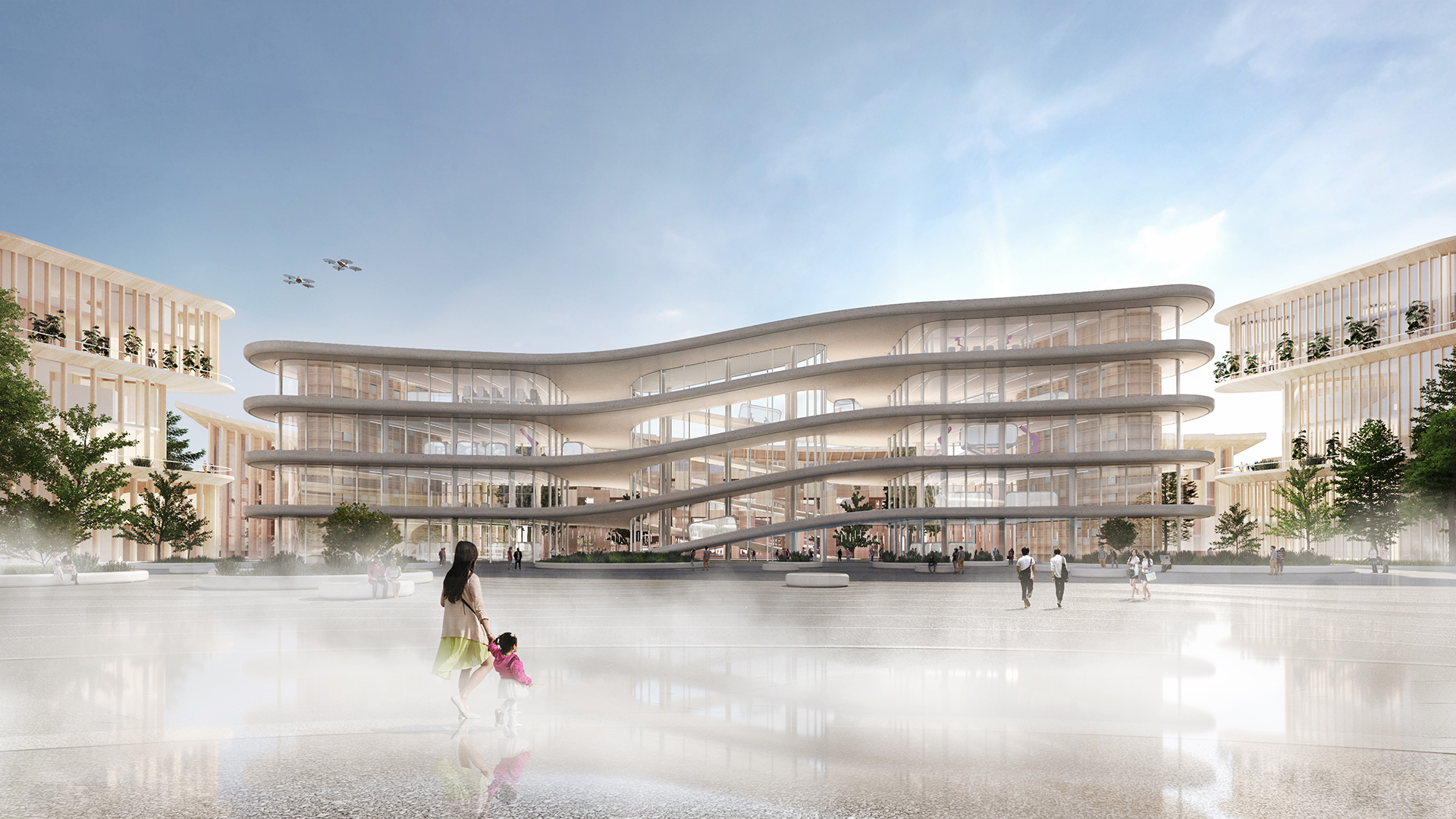
The site, a dismissed industrial area, just at Mount Fuji’s foot, will be the symbol of future living. Toyota has planned for Woven City to be powered by fuel cells that and fed with hydrogen. It will power vehicles, electronic devices, and buildings, thus creating a fully autonomous and clean, energetic ecosystem. It is one of the pillars for this project’s success; not only will it provide independence in the management of its resources, but it will be an example to other cities on how to supply a sustainable flux of energy to their built environment.
In addition to improving the energetic supply of a typical city, Toyota’s urban project will feature wooden buildings constructed through robotic-production methods (minimising the carbon footprint) and houses fully fitted with sensor-based AI to help with daily tasks for citizens and monitor their health condition. The city will have a pool of shared data collected by its various infrastructure, and AI will be in constant conversation amongst themselves. By improving and adjusting the city’s needs and hence creating “an environment where inventions with the potential to solve social issues are created on a timely basis.”
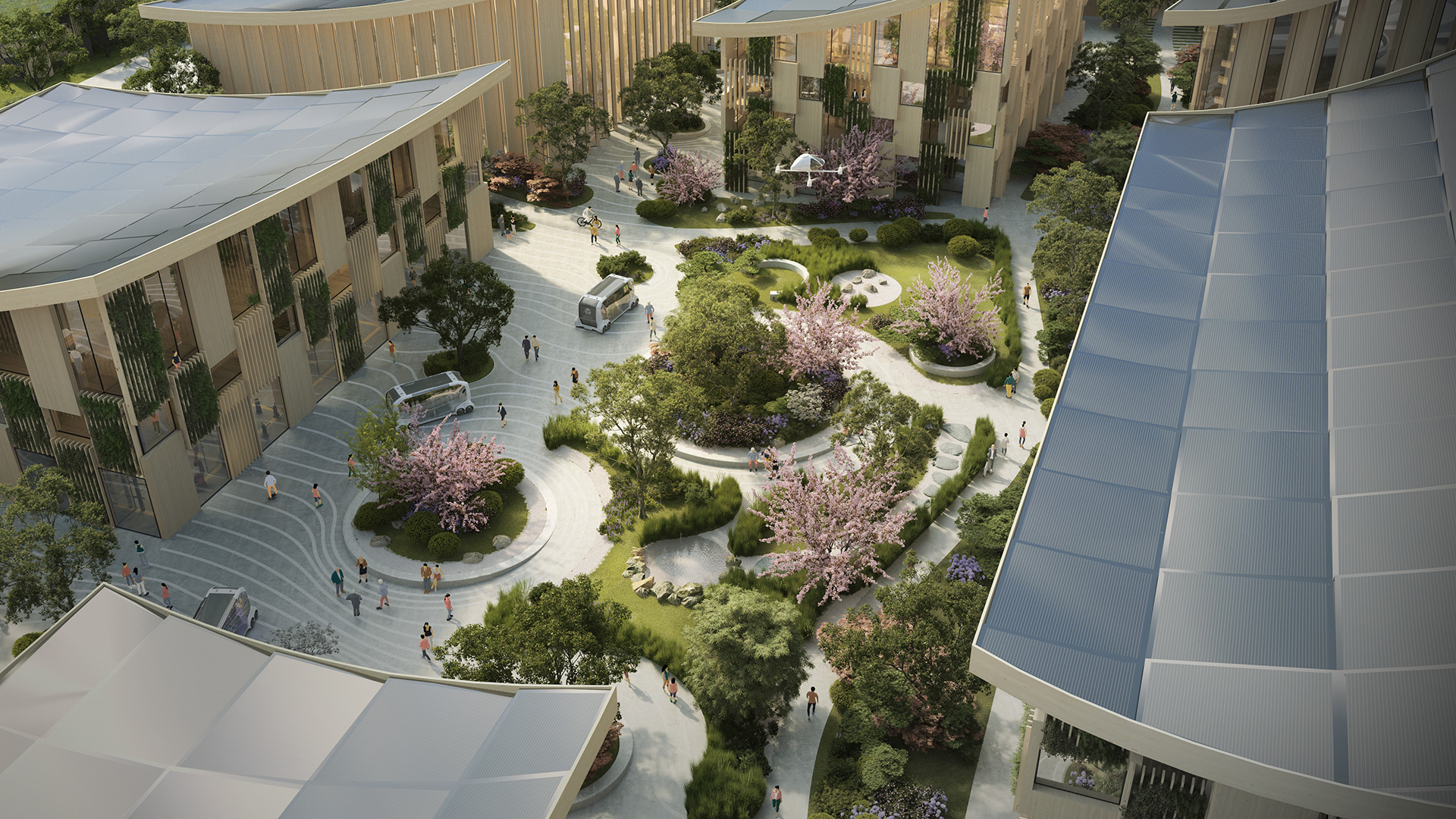
The famous automotive manufacturer has underlined the importance of partnerships to realise such a project, acknowledging the importance of receiving various parties’ inputs. To implement this objective, Toyota has opened a website link for companies and businesses to apply for collaborations regarding the city’s planning. Among many of these partners, BIG (Bjarke Ingels Group) is renowned for its technological and sustainable solutions in architecture. The firm’s director has embraced and acknowledged the potential of this open-air laboratory: “We have a unique opportunity to explore new forms of urbanity with the Woven City that could pave new paths for other cities to explore,” stated Ingels in a press statement.
Therefore, yes, it seems there is space for improvement in our current built environments to satisfy our needs for a “smarter” life. Yet, Bjarke Ingels’ words are an important motor to reflect upon the basis of smart cities. It is true that Woven City, beyond being a smart city, is a living laboratory to experiment with new technologies, to test autonomy, robotics, mobility, smart homes, and AI in a natural environment, but why does this need to be a tabula-rasa process? Why from Limetown to Woven City, from Fordlandia to Masdar starting from scratch, is a recurrent element of creating smart cities?Surely, having a control group and bottom-up approach in city planning determines factors in the choice of starting projects like these from the ground up. However, this does not fully answer the question. Toyota talks about “how the smart cities of the future could function – and how residents will live in them.” Yet, I cannot stop thinking that smart cities of the future will eradicate all of the existing cities or occupy all of the vacant land left. Therefore, would it not be more efficient to channel this hunger for investigating smart cities towards our existing cities? To implement our homes, to improve our vehicles, to connect our pool of data? Presumably, this would be the arduous method; imagining new ways to develop integrated AI within an existing built condo in London is more difficult. It involves more constraints than projecting a brand-new wooden house in Japan is fully connected to automated elements.
Our cities have not been thought of as connected elements of the same motherboard but in a more random fashion. If, similarly to Woven City, we wanted to create underground hydrogen power storages, water filtration systems, and a network for the autonomous delivery of goods connected to the homes above, it would not be possible?
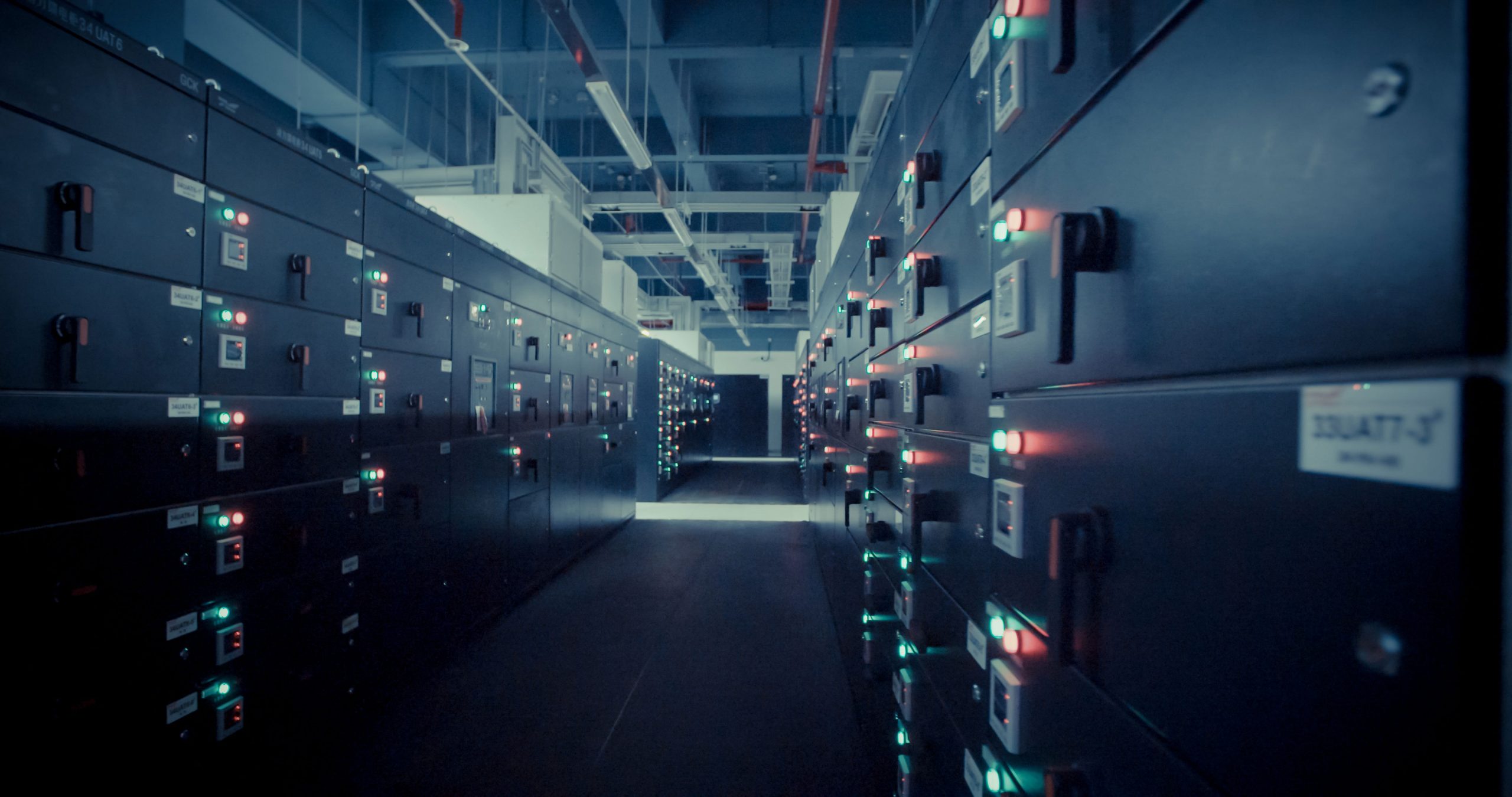
All of the work and planning for Toyota’s project is still invaluable. The observations and understanding of what people need within a built environment will be essential information to investigate further. There is a distinction between the use Woven city will have and the possible implementations our cities could have from it; these two are not mutually exclusive, but they will need to exchange information to learn from one another constantly.
Toyota has promised to commence works for this city in 2021; when fully functional, this town will be an example for other cities. It will provide an opportunity to observe people’s interaction and cooperation with AI. It will be able to create solutions for social issues that could affect the built environment. Talking about new forms of urban life is a remarkable step towards better living, but talking about “remodeled” forms of urban life is what our industries should also start focusing on.

